The second Sustainable Development Goals (SDGs) National Stakeholder Forum of 2023 took place on 25 April in the Aviva Stadium, Dublin. The focus of the meeting was to examine a draft of Ireland’s 2023 Voluntary National Review (VNR). The report assesses Ireland’s progress towards achieving the SDGs through the lens of ‘Building Back Better from the Covid-19 Pandemic while Leaving No One Behind’. The VNR will be presented to the United Nations High-Level Political Forum (HLPF) in July 2023.
I had the vantage point of chairing the forum with my colleagues at Antaris Consulting.
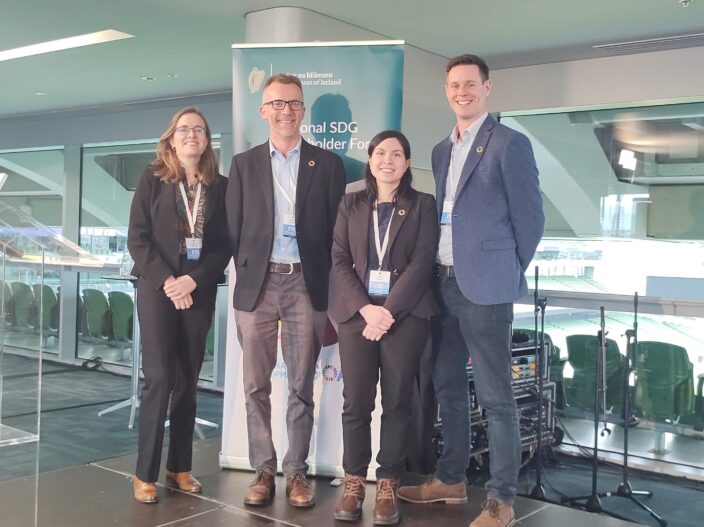
Workshop facilitator team at the Sustainable Mobility Forum 2023
So how did the Forum regard Ireland’s progress with implementing the SDGs?
It seems to depend on perspective and what measures are used – quantitative and qualitative.
The Central Statistics Office took a quantitative approach and sounded a positive note, with 81% of targets fully achieved.
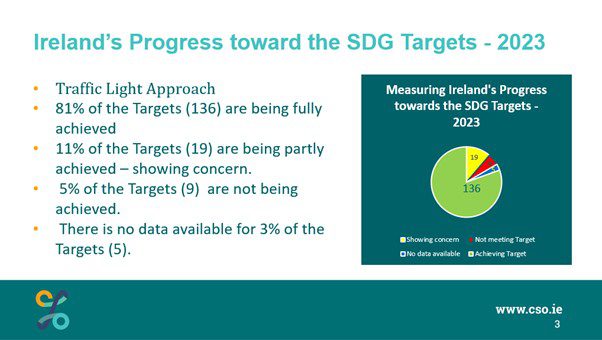
Ireland’s progress towards achieving the SDG targets, Central Statistics Office, 2023
Within this positive picture – let’s zero in on the targets we are not achieving:
- GOAL 6: Clean Water and Sanitation – one Target relating to water quality.
- GOAL 7: Affordable and Clean Energy – one Target relating to renewable energy targets.
- GOAL 11: Sustainable Cities and Communities – two Targets relating to municipal waste and sexual offences.
- GOAL 12: Responsible Consumption and Production – three Targets relating to material footprint & consumption and fossil-fuel subsidies.
- GOAL 13: Climate Action – one Target relating to Green House Gas emissions.
- GOAL 17: Partnerships to achieve the Goal – one Target relating official development assistance
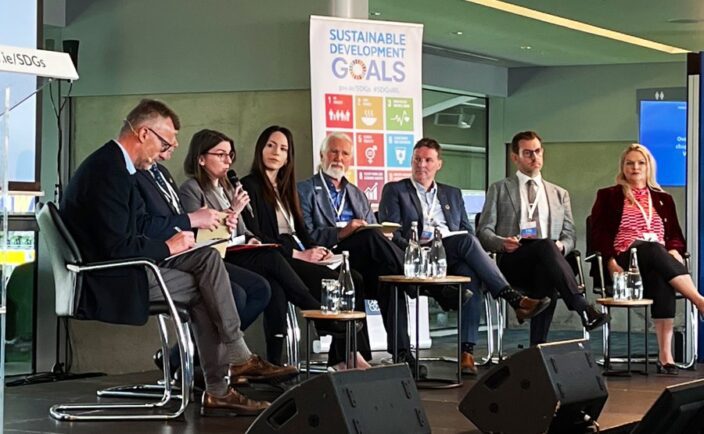
Stakeholder perspectives at the National Stakeholder Forum for the Sustainable Development Goals
For a qualitative assessment – the stakeholders offered their scores of our implementation progress across the seven areas reviewed in the VNR as follows (with 1 = abysmal and 5 = stellar):
| Theme | Score (1 to 5) |
| Education | 3.2 |
| Climate and the Circular Economy | 1.9 |
| Employment and Social Protection | 3.0 |
| Community Engagement and Inclusion | 2.7 |
| Housing | 1.4 |
| Health | 2.2 |
Stakeholder perceptions and lived experiences are less positive than the CSO’s metrics.
The Forum’s work included delving into the reasons underpinning the scores across each theme by asking the questions:
- What has Ireland done well?
- What could Ireland do better?
- What have we learned and would like to share?
Climate Action and Circular Economy
Looking specifically at the Climate Action and Circular Economy theme, the Forums feedback on these questions was as follows:
Ireland is doing well by:
- Promoting greater awareness and public engagement with the climate emergency, resulting in broad acceptance of the imperative for action
- Developing comprehensive policies and plans as part of a legally-binding climate governance framework.
- Establishing a wide array of enterprise supports and grants for businesses and other organisations in support of sustainable transition.
Ireland could do better by:
- Translating targets, plans and actions into an outcome of reduced national greenhouse gas emissions. (Ireland’s greenhouse gas emissions continue to rise!)
- Engaging more meaningfully with LNOB at-risk groups, especially by using climate action as a lever for social justice.
- Cultivating a national culture of reduction and reuse, with recycling as a last resort.
Messages for the International Community:
- We need to move from a commitment to action to a commitment to results! Unfortunately, there is a disproportionate emphasis on measuring ESG (environmental, social, governance) and insufficient focus on results.
- The conventional wisdom that society has to pay a high price for a sustainable transition is a misconception. On the contrary, most people will be far better off in a world where Agenda 2030 is the reality.
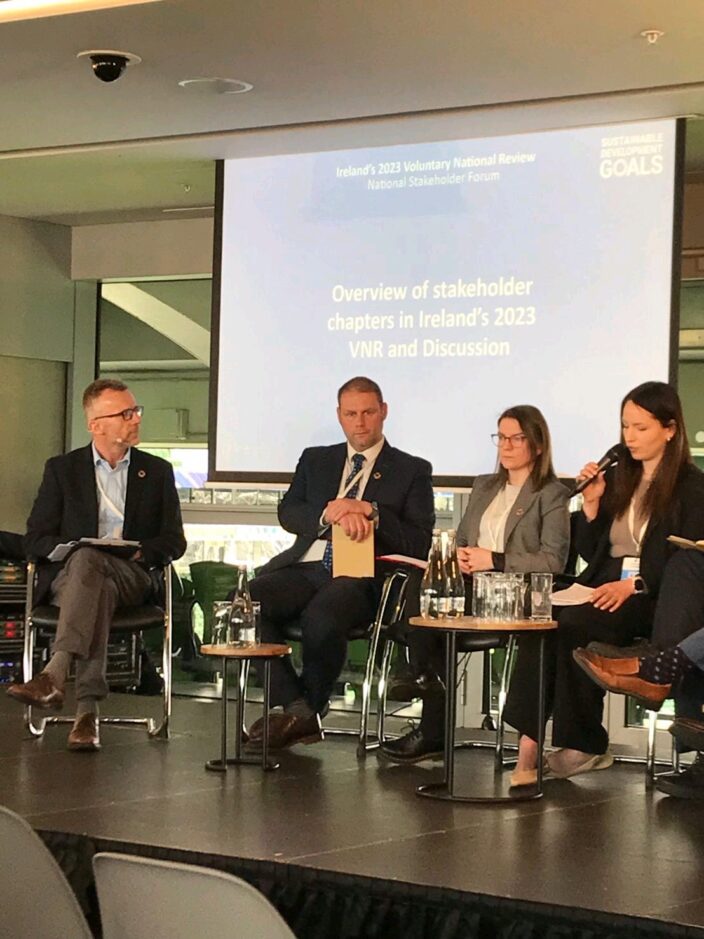
Stakeholder Perspectives at the Sustainable Development Goals National Stakeholder Forum
How to make sense of this?
The perennial challenge at environmental conferences, including this Forum, is how can we integrate perspectives and values to make better decisions. We are struggling with climate and housing because conflicting perspectives and values pinch these two areas: economic growth and the role of markets, respectively.
This conflict was reflected in the Forum’s call for more collaboration and more whole-of-society engagement. The conflicting perspectives and values need to be rebalanced or integrated. Focusing on rebalancing requires a shift in power dynamics – and feels like a battle. Focusing on integration requires better thinking and the capacity to see more comprehensively. And that requires hard work! However, integration is the sustainable way forward.
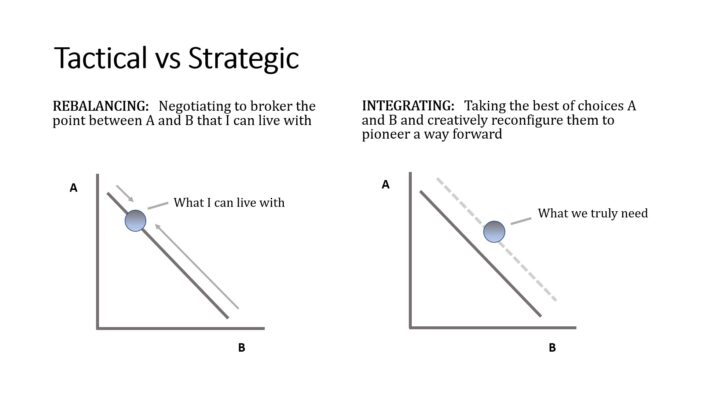
More strategic, less tactical, in favour of an integrative approach (based on work by Roger L. Martin)
If your project requires a more strategic approach and you would like to escape the tyranny of tactical battles – contact me.
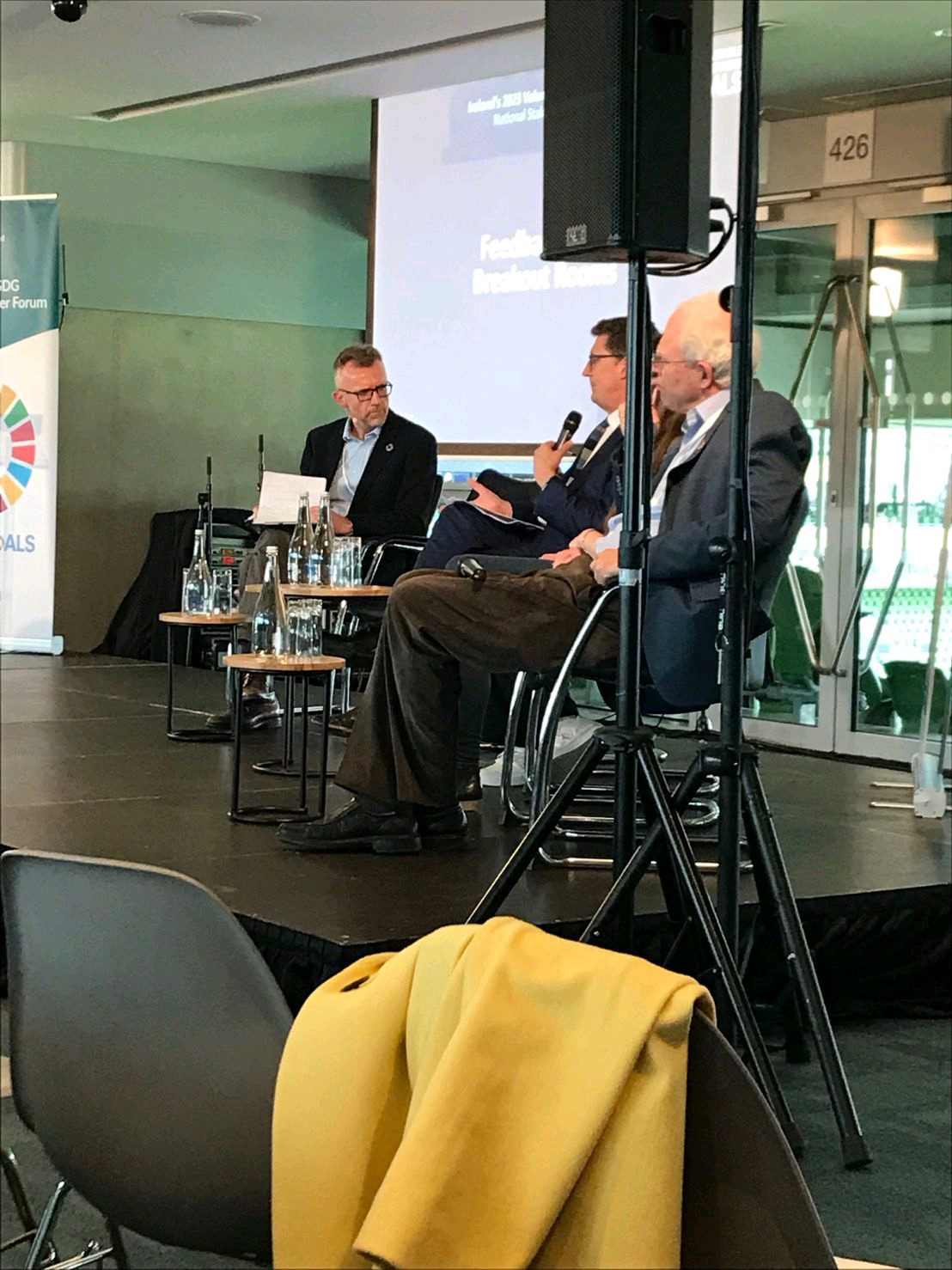
Share this on...